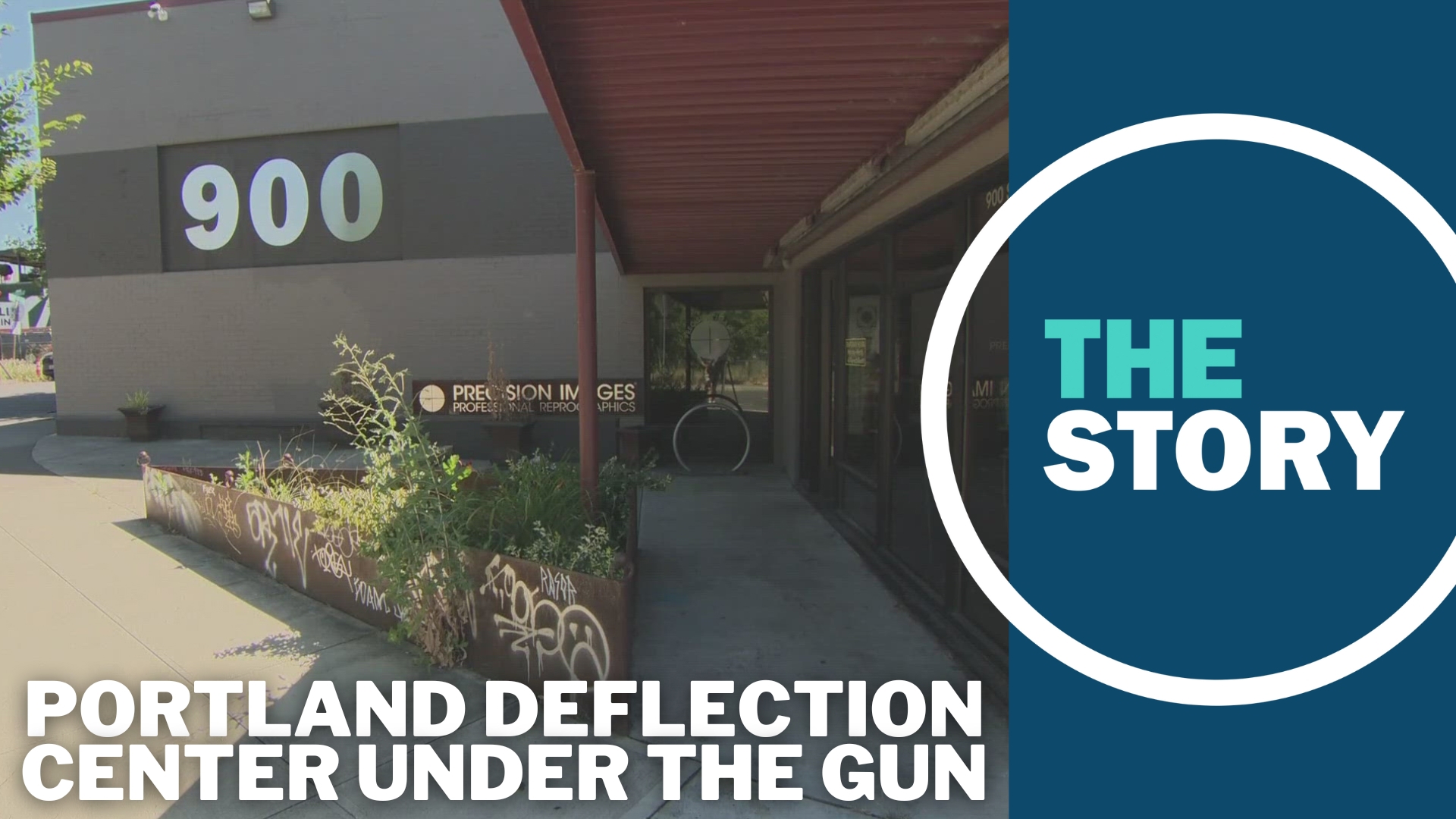PORTLAND, Ore. — Multnomah County announced last week that it needed to push the opening of its drug deflection center from Sept. 1 to sometime in October, and Portland Mayor Ted Wheeler had a clear message to county leaders on Tuesday: Make sure that's the only delay.
"We just need the county to hear that we’re serious about this, that we have a strong sense of urgency behind it," he told KGW shortly after a meeting where county leaders briefed the Portland city council on their deflection plan. City commissioners Mingus Mapps and Dan Ryan also expressed frustration about the delay at the meeting.
The deflection program is part of Oregon House Bill 4002, which recriminalizes hard drugs starting Sept. 1 but allows counties to set up systems in which offenders can choose to accept treatment in lieu of jail. The deflection center is intended as a physical hub for Multnomah County's program, where police can drop off people who agree to pursue treatment.
The facility will initially only run during daytime hours on weekdays due to staffing limitations, which Mapps called "an obvious flaw" at Tuesday's meeting, since it means anyone arrested at night or on the weekend will be cited or taken to jail with no immediate option to choose treatment.
The eventual goal is to expand the center into a 24/7 operation that will also serve as a sobering center. Portland has been without a sobering center since 2019, and city leaders have been pushing the county to get the expansion done as fast as possible.
"If they stick to the timeline, if they continue to add the sobering services, if it becomes a drop-off center, if it becomes 24/7, then I think my colleagues and I will be satisfied, but right now, it’s a leap of faith," Wheeler said Tuesday.
Drug possession will become a misdemeanor on Sept. 1 whether the deflection center is ready or not. When county leaders announced the delayed opening last week, they said that they would use a "mobile outreach" model in the interim, dispatching staff to meet up with police on calls and offer people treatment options in the field in lieu of arrest.
Wheeler was lukewarm on that plan on Tuesday, calling it "not a good long-term solution" and stating that he and the other city council members would be unwilling to support the mobile model if the deflection center were to get pushed back again beyond October.
"If it looks like we're going to continue with mobile deflection as our primary means of making this program work, I don't think it'll... if we get any word that we're not going to move to a full-time facility that includes sobering beds (and) that does the work that is required to be done under this initiative, then we're going to have to reevaluate our partnership," he said.
He also said he wouldn't hesitate to direct police to begin arresting and booking drug offenders if the county can't get the deflection program up and running, declaring that "the public expects that we will enforce that law."
"That's clearly not the spirit of the state law that was passed by the legislature — they obviously want us to have a working deflection program," he said. "But if it's not working, the only tool available to us as a municipal government is arresting and booking. I just want to be very clear with everybody about that today."
Even as city leaders call for speed, others are demanding that the county hit the brakes. Parents at a preschool two blocks from the deflection center site have raised concerns about the facility's neighborhood impact, and on Monday, the preschool filed a lawsuit seeking to have the deflection plan thrown out, arguing that it was drafted behind closed doors in violation of Oregon's public meetings law.
When KGW reached out, Multnomah County said that it does not comment on pending or active litigation.

